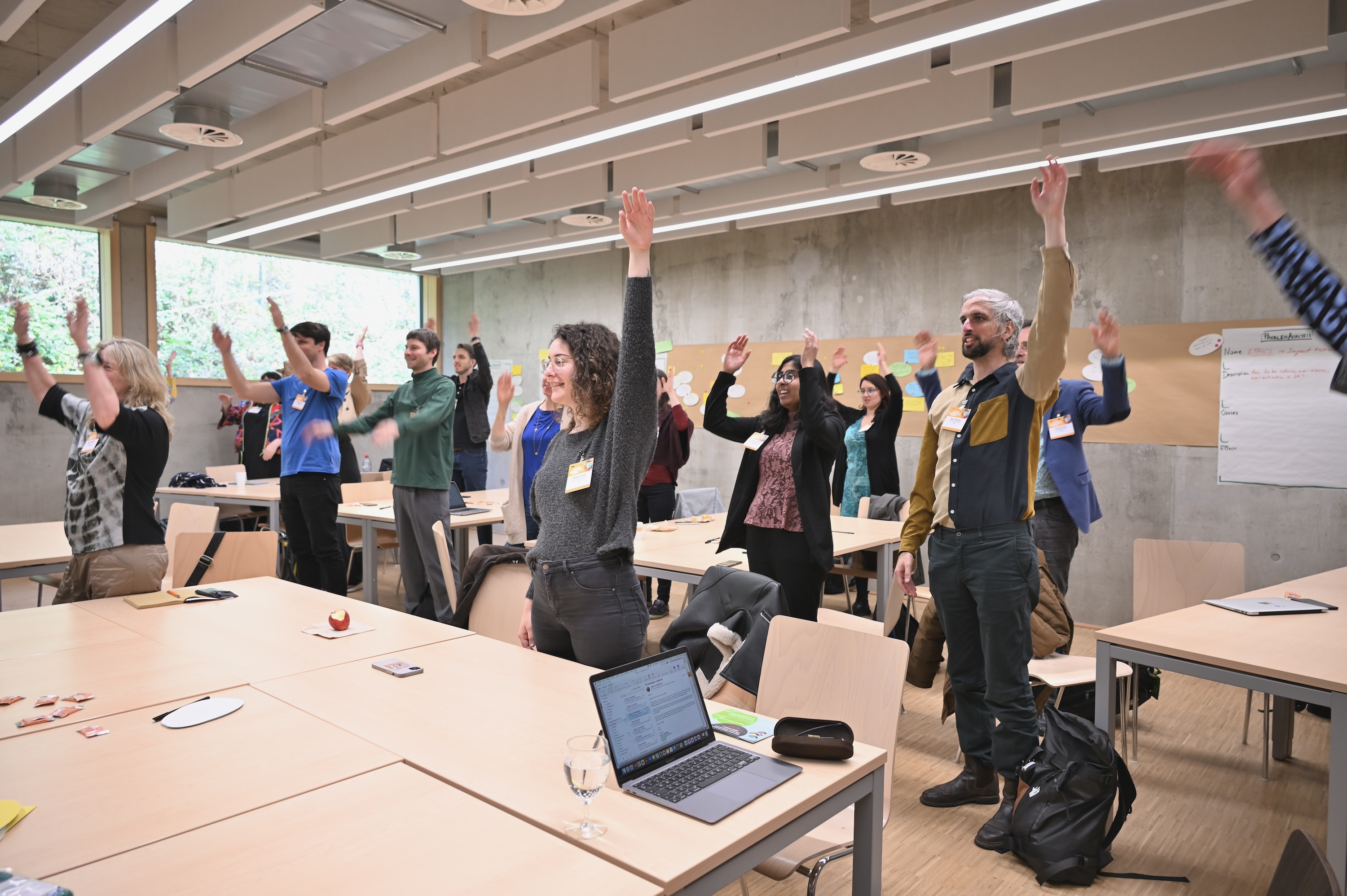
Rethinking impact assessment in citizen science
Stefanie
April 24, 2024, 1 p.m.
Rethinking impact assessment in citizen science
Stefanie Schuerz, Teresa Schäfer, Barbara Kieslinger
Rethinking impact assessment in citizen science was the topic of a whole-day focus session at the ECSA Conference 2024 in Vienna. The event was the perfect space for more than 80 attendees to discuss current challenges and possible solutions to evaluation and impact assessment in a design thinking approach that spread across three consecutive sessions. It was organised by Barbara Kieslinger, Teresa Schaefer and Stefanie Schuerz of the ECS project and Antonella Passani of the Impetus project.
Is it still a challenge? Yes, it is
For years we have been trying to show the many facets of citizen science and the impact it can have on individuals, communities, and society at large. There have been various attempts to model the process into frameworks and provide guidelines and tools, such as the ones utilised by the European funded projects MICS, ACTION, IMPETUS and ECS. However, many citizen science initiatives still struggle with impact assessment due to a gap between what our models intend to measure and what we are able to actually implement in the context of our projects.
The whole focus session was implemented along a design thinking process, which concentrates on solving issues and creating new ideas by a deep analysis of the problems at stake. Thus ⅔ of the time was dedicated to the problem analysis while the final ⅓ was looking into creative ideas and solutions.
Session 1: Understand & Observe
The first part of the focus session was dedicated to collecting the diversity of problems and challenges related to impact assessment. This very rich collection from across the participants resulted in 5 big challenge clusters:
Methodological Challenge: How to create a flexible and modular “cookbook” for evaluation and impact assessment in citizen science?
Ethical Challenge: How to be inclusive, non-invasive and non-extractive in impact assessment?
Time Challenge: How to deal with time issues in impact assessment? For example, how to capture impacts that might happen after the end of a citizen science initiative?
Stakeholder Challenge: For whom do we assess the impact? And who should be involved?
Planning Challenge: How to plan impact assessment in complex participatory processes in which goals and activities might change over time?
Session 2: Definition & Synthesis
Based on the clusters from the first session, the participants in the second session went deeper into the problem analysis by elaborating Personas that represent the different challenges. Personas are fictional characters that help us to understand our community’s needs, experiences and behaviour.
This session ended with the presentation of 5 very inspiring personas:
Session 3: Ideation, Co-creation & Prototyping
Finally, the participants of the last session were challenged with the most creative task of the day. Working again in groups, they brainstormed on potential solutions that would help the personas to tackle their problems. And to spark creativity amongst participants, the solutions were presented via Play-Doh prototypes.
We want to thank all participants for their great contributions!
The workshop will be described in the proceedings of the ECSA conference and we are currently working on a detailed documentation of the outcomes.
And if you are still interested in evaluation and impact assessment in citizen science, watch out! There is an ECSA Working Group on Impact Assessment in Citizen Science in the making.